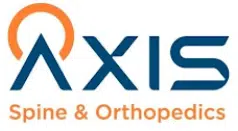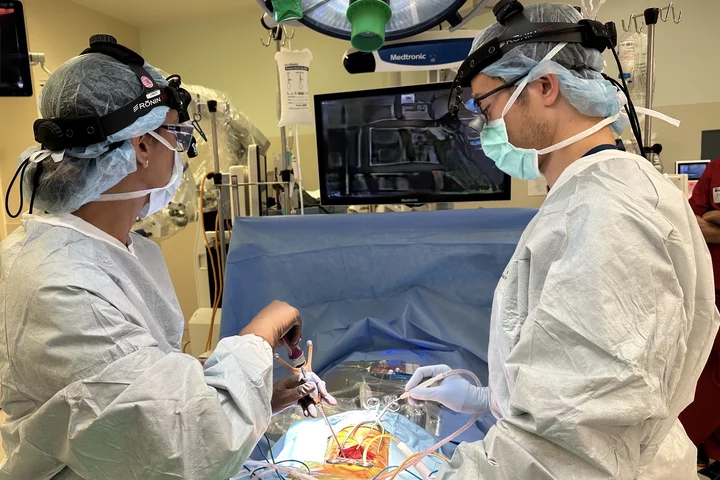3 Simple Techniques For Axis Spine And Orthopedics
3 Simple Techniques For Axis Spine And Orthopedics
Blog Article
All about Axis Spine And Orthopedics
Table of ContentsThe 8-Minute Rule for Axis Spine And OrthopedicsExamine This Report about Axis Spine And OrthopedicsAxis Spine And Orthopedics Can Be Fun For EveryoneAn Unbiased View of Axis Spine And Orthopedics
An orthopedic specialist is a physician that specializes in treating troubles of the bones, joints, and connective cells, and ensuring you preserve a healthy and balanced bone and joint system., we have actually extremely certified orthopedic doctors that are capable of treating clients of all ages. I obtained involved in study during my very first year of clinical college, and I started making links with orthopedic doctors early on.
Adhere to these guidelines meticulously to avoid complications throughout the treatment. Talk about the post-operative treatment strategy with your cosmetic surgeon. Comprehend what to anticipate throughout the recovery duration and how much time it will certainly take to return to daily activities. Prepare for transport to and from the health center on the day of surgery.
Getting My Axis Spine And Orthopedics To Work

You will not be able to drive right away after the treatment. Technique relaxation techniques, such as reflection or deep breathing exercises, to help manage stress. Shower with an anti-bacterial soap the evening before and the morning of the surgery to reduce the threat of infection. Your physician will offer a lot of details regarding post-operative care, consisting of just how to stay tidy and keep the medical area tidy. This can be practical to do days prior to the surgical procedure to ensure you do not neglect anything. Complying with these tips can prepare you literally and emotionally for your orthopedic surgical procedure. Keep in mind to maintain a positive expectation and trust fund your clinical team's proficiency, adding to a smoother recuperation procedure. Your active involvement in the prep work procedure will encourage you to organize your wellness and enhance your general surgical experience. Checking out a little bit regarding the surgical procedure or trying to enjoy a video of it is the very best preparation. In this way you have a concept of what happened, what is taking place, and what will occur.

Nobody anticipates you to recognize anything, so do not try to remember a lot of arbitrary truths. Otherwise, joint discomfort can really mess up your life.
Usual conditions treated by orthopedic surgeons are: Cracks and Bone Injury: Broken bones and various other injuries from crashes or impacts. Bone Going Here Cancer Cells: Lumps in the bones. Orthopedic Injury: Extreme injuries influencing bones, joints, or soft cells.
Orthopedic surgeons execute a range of treatments to aid individuals with musculoskeletal issues. Aside from these subspecialists, some orthopedic specialists are generalists. Training may include standard medical school (a doctor of medication degree, or MD)or osteopathic education and learning (a medical professional of osteopathy degree, or DO) - axis spine.
How Axis Spine And Orthopedics can Save You Time, Stress, and Money.
Next off, they complete an orthopedic residency. It's generally five years and gives hands-on learning in a medical setup. Consultations frequently include: Reviewing your symptoms, clinical background and lifestyle.
Treatment recommendations. Some conditions require added imaging, like a CT scan or MRI for more in-depth views of the unpleasant location. Your orthopedist will certainly advise treatments to reduce signs and symptoms until you receive a diagnosis. Orthopedic surgeons focus on nonsurgical and medical techniques. For sure types of orthopedic injury or hereditary conditions, surgery is usually the very first line of therapy. For most various other problems, orthopedists try nonsurgical therapiesinitially. It might take even more than one sort of therapy to achieve lasting alleviation. Choosing the right is vital for successful surgical results and improved patient recovery. With a large range of choices readily available in the market, it can be overwhelming for both doctors and clients to make a notified choice. The top 5 variables to think about when choosing an orthopedic dental implant are surgical compatibility, cost-effectiveness, considerations for alteration surgical procedure, patient-specific variables, and the style and development of the implant. They come in numerous shapes, dimensions, and materials, each serving a details objective based upon the client's demands. Comprehending the fundamentals of orthopedic implants is important prior to diving into the decision-making procedure. One of the leading considerations when selecting an orthopedic implant is its compatibility with the surgery. Different implants are developed for different surgical strategies and techniques. The orthopedic implant ought to be specifically made to fit the patient's composition and make certain stability during the recovery process. Surgical compatibility involves elements such as implant dimension, form, and product. The success of orthopedic procedures depends greatly on the proper option and positioning of implants that work with the individual's anatomy and case history. By focusing on client safety and well-being, orthopedic surgeons can achieve effective end results and give the best quality of care to their individuals. Doctors have to meticulously take into consideration the biomechanical residential properties of the implant and how it will integrate with the patient's bone structure. This will add to much better medical results, minimized problems, and much shorter recovery time. When selecting implants for a patient, it is crucial to take into consideration a variety of patient-specific aspects that can affect the success and outcome of the procedure. These variables include the individual's age, bone top quality and quantity, oral wellness condition, clinical background, way of living practices, and visual preferences. For older individuals with endangered bone density, much shorter implants or grafting procedures may be helpful to give the necessary stability and support. 3. Is the size of the orthopedic implant a vital factor to consider? How does it impact the surgery and the individual's recuperation? Yes, the dimension of the dental implant is vital as it has to match the patient's structure for proper fit and performance. 4. Can the person's age and way of living play a role in choosing one of the most suitable orthopedic implant? Absolutely. How does the cost of an orthopedic implant factor into the decision-making process, and are there ways to stabilize top quality with price? The expense of the implant is a vital factor to consider, however it should not be the sole determining factor. Stabilizing high quality with price entails evaluating different implant options 'long-lasting advantages and prospective issues. Report this page